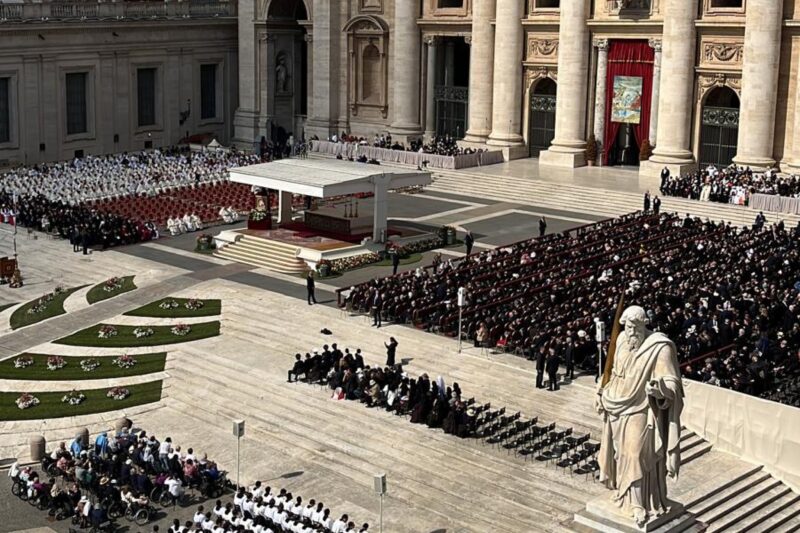A message by the President of the Commission
From the moment of his election, Pope Leo XIV has signalled a profound commitment to Catholic Social Teaching (CST), positioning it as a cornerstone of his pontificate. His choice of the name ‘Leo’ pays homage to Pope Leo XIII, who, in 1891, issued Rerum Novarum, laying the foundation for modern CST. This historical reference underscores Pope Leo XIV’s intent to address contemporary challenges with the same moral clarity and compassion.
Last week I have been blessed to witness, on two occasions, how deeply this commitment to CST animates his vision. Addressing the Centesimus Annus Pro Pontifice Foundation on May 17th, the Pope highlighted the need to “give voice to the poor” and to engage in “attentive listening and open dialogue.” He stressed that CST offers “interpretative keys that bring science and conscience into dialogue,” especially pertinent in our era of rapid technological advancement.
In his inaugural homily, the following day, Pope Leo XIV emphasized unity and peace, calling for the Church to be a beacon of hope in a divided world. He stated, “We want to be a small leaven of unity, communion and fraternity within the world.” This vision aligns with CST’s principles of solidarity and the common good.
Pope Leo XIV has also drawn parallels between the industrial revolution of the 19th century and today’s digital transformation, particularly the rise of artificial intelligence. He has cautioned that AI brings with it new and complex threats to human dignity, justice and the world of labour; concerns that resonate strongly with those raised in Rerum Novarum.
In his address to the diplomatic corps, the Pope reaffirmed the Church’s mission to promote peace, truth, and justice, emphasizing the importance of respecting human dignity amid global challenges like migration and technological disruption.
Taken together, Pope Leo XIV’s early actions and statements point to a papacy firmly rooted in the tradition of CST, yet deeply attuned to the evolving ethical questions of the digital age. His leadership offers not only a continuity of Catholic social thought, but a renewed urgency to place human dignity, solidarity and the common good at the heart of the Church’s witness.
As the Justice and Peace Commission of the Archdiocese of Malta — entrusted by the local Church with the mission of promoting Catholic Social Teaching — we welcome with joy and deep gratitude this renewed emphasis by Pope Leo XIV. From the first moments of his pontificate, the Pope has reminded the Church and the world that CST is not a peripheral concern, but a vital tool for interpreting and transforming the challenges of our time.
We feel both honoured and humbled by the responsibility this moment brings. With renewed conviction, we commit ourselves to the task ahead: to continue articulating and embodying the social dimension of the Gospel, particularly where the dignity of the human person is most vulnerable.
We also recognise that this mission is not ours alone. It is sustained by the countless individuals, groups, and communities of goodwill — within and beyond the Church — who share a passion for justice, solidarity and the common good. Together, may we rise to the occasion.
Daniel Darmanin
President
Justice & Peace Commission Archdiocese of Malta



